Starting in June, Beth Schiller and Lee Straw are taking a gamble.
The two farmers, owners of Dandelion Springs Farm and Straw Farm in Newcastle, are starting the state’s first year-round, all-you-can-eat CSA.
Yes, all you can eat.
Schiller and Straw are betting that the CSA’s customers will be willing to pay up front for most of their grocery needs for the year, and then not take advantage of the farm’s generous policy that allows them to take as much beef, pork, lamb, milk and vegetables as they want.
The pair even plans to encourage people to take more than they need some weeks, so they’ll have enough food to freeze and can for the winter.
Schiller said she is “kind of” nervous about the experiment, but feels lucky that she lives in Maine, where most folks are supportive of innovative efforts to promote local foods.
“The customers we’ve talked to so far, if anything, are worried they’re going to take too much,” Schiller said. “I think the scenario is more likely to be that we’re going to encourage people that it’s OK to take more. I don’t think we could get away with this anywhere (else). I haven’t gotten any sort of feeling that anyone wants to take advantage of us.”
ONE OF A KIND AMONG MAINE CSAs
Maine now has close to 200 community-supported agriculture programs, or CSAs, according to Melissa White Pillsbury, organic marketing coordinator for the Maine Organic Farmers and Gardeners Association. She confirmed that the Newcastle all-you-can-eat CSA is the first of its kind in the state.
There are very few all-you-can-eat CSAs in the rest of the country. Erin Barnett, director of LocalHarvest.org, a website that maintains a national database of more than 4,000 CSAs, said the only other one she knows of is Essex Farm in New York owned by Kristin and Mark Kimball.
Kristin Kimball is the author of “The Dirty Life,” a memoir about the couple’s start-up of the farm. The Kimballs call participation in their CSA “a year-round, full diet, free choice membership.”
Schiller said she and Straw were inspired in part by Kimball’s book, but have also heard of a farm or two in New Hampshire and one in Ithaca, N.Y., that have at least tried the all-you-can-eat model.
Lee Straw grew up in Buxton, and has been farming since the early 1980s. He’s best known in the state as a sheep farmer, and has been selling dairy milk since 1998. Schiller grew up west of Augusta. She’s been farming on various parcels of leased land in the midcoast since 1998, and at her current property for a couple of years.
Schiller and Straw now work their organic farms as one 50-acre unit, but decided to keep their original farm names because they were already branded that way in the public’s mind. (“So think of us as a couple with a hyphenated farm name,” Schiller said.)
Schiller and Straw believe that, between their two farms, they have the diversity of products to start a CSA that will serve as a “one-stop shop” for 99 percent of a family’s grocery needs.
They already do a lot of retail at farmers markets, but right now, the majority of their products are sold wholesale. They hope the CSA will give them closer relationships with their customers and show those customers the bigger picture of how a farm season works.
CUSTOMERS PAY UP FRONT
Usually, joining a CSA means paying up front for a pre-determined amount of food. The money gives the farmer much-needed capital early in the growing season, and the customer gets to share in the local harvest.
Typically, the customers go to the farm, a farmers market or designated drop-off point to pick up their share of food. Sometimes, it’s been boxed up for them, and there’s no choice. Other CSAs allow customers to choose whatever they want from the farm stand, with limits on certain products so there will be enough to go around.
Christine Mayer, program manager at the Fulton Center for Sustainable Living at Wilson College in Chambersburg, Pa., which maintains a national database of more than 1,600 farm CSAs, said one of the latest trends is a cooperative model where two or more farms band together so they can offer customers a more diverse array of foods. She had not heard of an all-you-can-eat model.
“I think it’s amazing that the farmers there are willing to take this leap of faith,” she said. “It really says a lot about this whole movement.”
Schiller and Straw already offer a $200 share in which a customer gets farm-stand credit. The new, all-you-can-eat model is similar to the Essex Farm model. Here’s how it works:
The CSA is year-round, but for the first year, Schiller and Straw are asking for an initial payment that covers just seven months, from June through December. The seven-month cost for a single adult is $2,355. Add another adult in the household for $1,665. (Everyone in a household must join.)
Children ages 3 and under eat for free, and children ages 4 and older eat for $100 per age year. (For example, food for a 6-year-old would cost an extra $600.)
Customers can pay the whole sum up front or split it into quarterly or monthly payments. Make the full payment by June 1, and get 10 percent off. Make it by Sept. 1, and get 5 percent off.
Mayer said the all-you-can-eat plan appears to offer the farmers “quite sizeable operating capital. Any farm would be happy with that at the beginning of a season.”
“I think that’s a wonderful way to go about this, charging per person in the household,” she said. “It makes a lot of sense.”
Customers will collect their food at the Newcastle farm or at the farmers markets in Portland or Rockland. After the farmers market season is over, orders can be placed online, and the food will be delivered to drop-off points in Portland or Rockland.
CAREFUL MONITORING
But what about the all-you-can-eat part of the plan? Is it truly all-you-can-eat? Will customers take so much food that it eats up the farm’s profits?
Schiller said the reason she’s only asking for a seven-month payment is that she wants to closely track what people are taking and how much, in case she needs to make some price adjustments in December for the winter months.
She realizes some people might not be comfortable with a potential price increase down the line, so while she is asking for a year’s commitment to the program, no one will be required to sign a contract.
“We could go on our sales records and predict what people may take for the first seven months, but we really wanted to see how it works,” Schiller said. “Part of the cost for the first person in the household is you do get a whole lamb for your freezer, custom cut, and a sheep skin and some yarn and some other things that add more to the per-week cost.”
Schiller and Straw are also planning some on-farm activities just for their CSA customers. The second Tuesday of every month, a mobile pizza oven will come to the farm and bake pizzas for “a lively picnic.” There will be canning workshops during growing season, and sleigh rides in the winter.
Schiller expects that the CSA will provide the bulk of a family’s food for the year. There may occasionally be limits — on the first tomatoes of the season, for example — but most items will be “all you can eat.”
The farmers are hoping that, in the end, everything will balance out. One family may love pork chops, for example, but not be big milk drinkers.
“Initially, we talked about setting limits on some of the more expensive cuts of meats,” Schiller said, “but then we thought if we were to say, ‘No more than one tenderloin a month,’ then I think everyone would make sure they got that one tenderloin a month, whether they wanted it or not. This way, I think people are going to be more free to eat the type of food that they’re really called to eat, and I don’t worry about anybody taking in excess.”
The CSA won’t provide everything a family might want. The farms raise beef, pork and lamb, for example, but not chickens for eating.
“I recognize that we have some significant holes,” Schiller said. “We do not make cheese, and so we’re hoping to find somebody who can do that for us. We don’t offer grains and we also don’t offer sweetener, those are the two main things. We don’t have maple syrup or honey available.”
With this kind of CSA, customers may be more likely to try, say, some kind of organ meat when they know it’s not displacing a bunch of carrots, as it would in a more limited farm share. Conversely, Schiller thinks people will be less likely to waste food, since they are taking their whole diet from the farm.
Kate Bathras of South Portland and her family have decided that the CSA is worth gambling their family’s food budget on, and they have already signed up.
Bathras will be shopping for two adults — herself and her husband, Tim. They have a 3-year-old daughter, Norah, who will eat for free.
A share for the Bathras will cost $4,020. That’s $134 a week, or $574 a month.
Bathras already does most of her shopping at the farmers market, where she “easily” spends more than $100 a week for meat, vegetables, milk and eggs. She said she heard about the new CSA through a friend on Facebook.
Before signing up, Bathras emailed Schiller and quizzed her about the farms’ practices and what they feed their animals. “I asked her lots of questions to get the big picture,” she said. “If we’re committing to basically feeding our whole family on this food from this one farm for an entire year, I want to know the ins and outs.”
Bathras said foods she can’t get through the CSA — grains, spices, avocados and other fruits, olive oils, etc. — she’ll purchase through a buying club where she’s already a member.
She’s not worried about taking too much food from the farm.
“When I hear the term ‘all you can eat,’ to me it goes without saying that what they’re saying is within reason,” Bathras said. “We’re not going to show up and shop for a family of 20. My husband and I will want to make sure that we’re being conscientious and respectful of their process and their costs.
“To me,” Bathras said, “there are so many pros that it seems really worth it to take the gamble with them and encourage them to try this out.”
Staff Writer Meredith Goad can be contacted at 791-6332 or at:
mgoad@pressherald.com
Twitter: MeredithGoadTO VIEW A SLIDESHOW OF SCENES FROM DANDELION SPRINGS FARM AND STRAW FARM, GO TO WWW.PRESSHERALD.COM/LIFE/FOODANDDINING.
Send questions/comments to the editors.


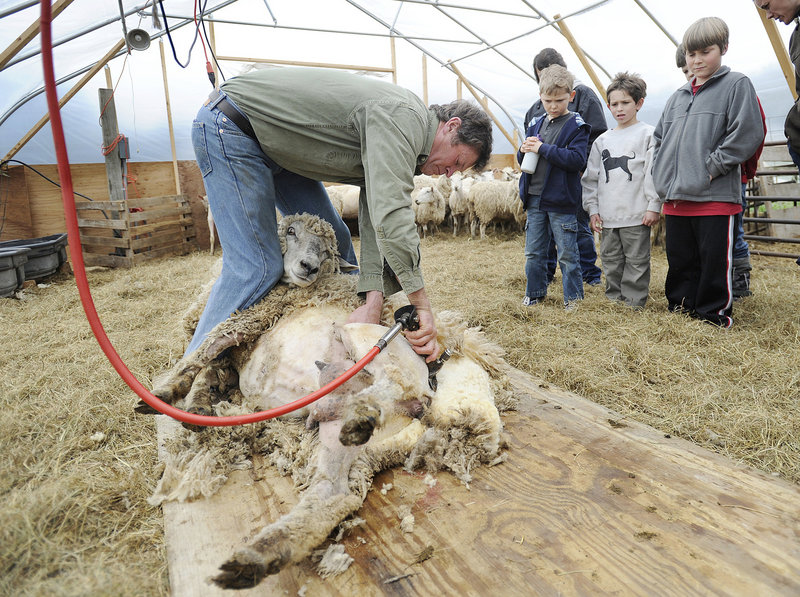
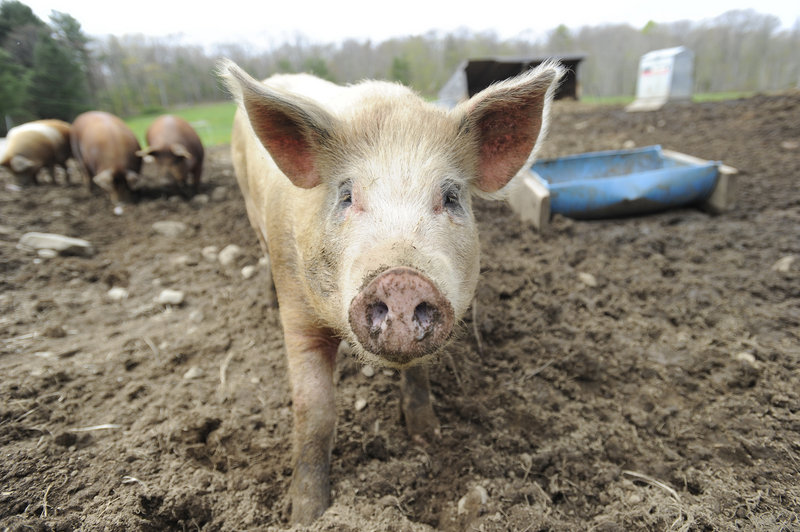
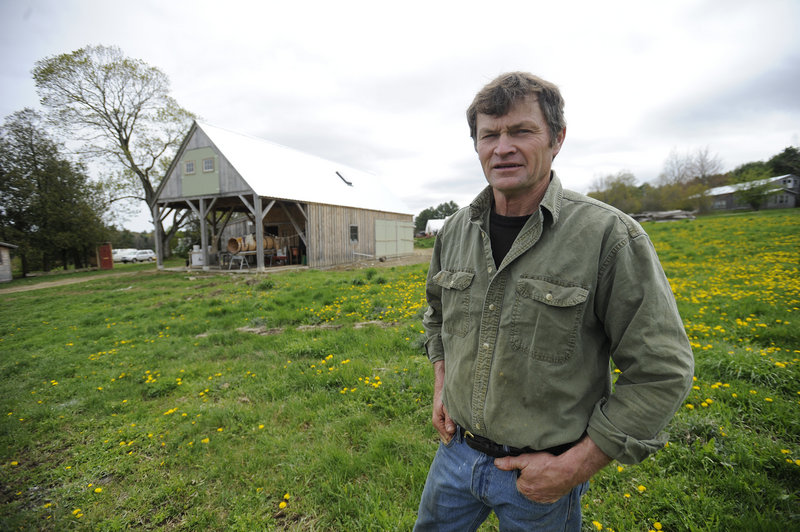

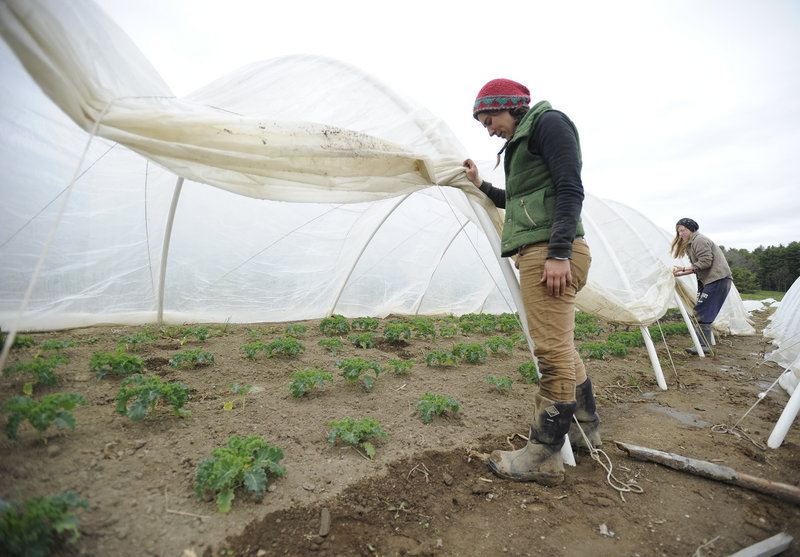
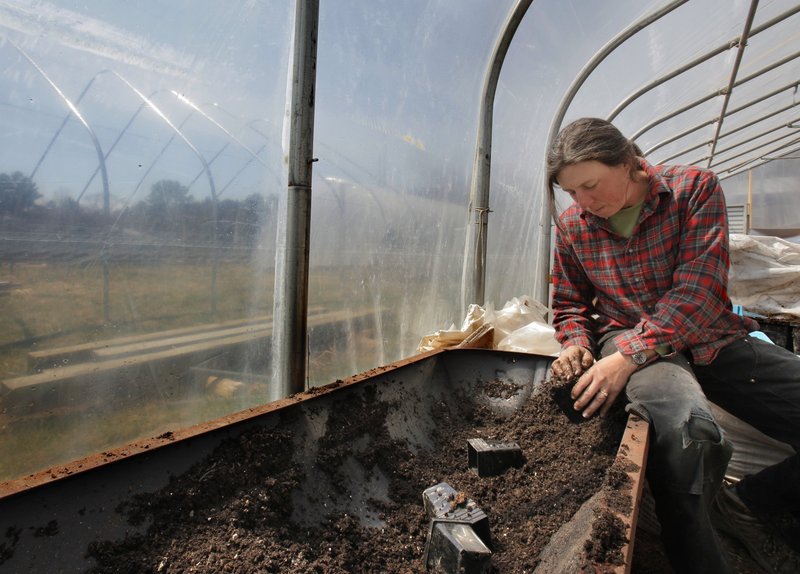

Success. Please wait for the page to reload. If the page does not reload within 5 seconds, please refresh the page.
Enter your email and password to access comments.
Hi, to comment on stories you must . This profile is in addition to your subscription and website login.
Already have a commenting profile? .
Invalid username/password.
Please check your email to confirm and complete your registration.
Only subscribers are eligible to post comments. Please subscribe or login first for digital access. Here’s why.
Use the form below to reset your password. When you've submitted your account email, we will send an email with a reset code.